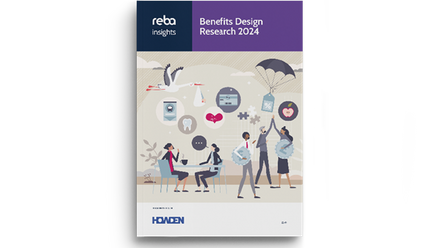Covid-19 has revealed major gaps in employee wellbeing – here’s how Clifford Chance is fixing them

Pre-pandemic, one of the most significant steps we made was to recruit an on-site psychologist. Alongside our private medical insurance, GP service, gym and swimming pool it, created a holistic benefits package for body and mind.
It was popular. Graduates, in particular, raved about the pool. Then the virus struck and these in-house services suddenly became obsolete. Overnight the lines between clocking on and off became blurred. Family life became increasingly tangled up with work life.
Fortunately, our psychologist and GP were able to support our colleagues online, but it made us realise that the remit of our employee wellbeing services needed to reach much further than the four walls of the office.
Adapting benefits
The future of our wellbeing solutions will need to be virtual to cater for a new hybrid workforce that operates half online and half in person, when it’s safe to do so.
As home life has merged with work life, the past 12 months have also taught us that our employee wellbeing solutions will need to address health issues that have long been under-supported by traditional benefits.
Fertility, parenthood and menopause are three issues that can and will, either directly or indirectly, impact all of our colleagues at some point in their careers. For many, it will lead to dips in productivity and sick leave. For some, it could even lead to quitting the business altogether.
This doesn’t have to be the case. In exploring solutions to better support our remote workforce we discovered digital healthcare platform Peppy, which we’ll be offering to all our employees and partners from March.
The platform provides virtual, accessible and, crucially given our current predicament, remote support for issues specifically relating to fertility, parenthood and menopause.
As an extension of the high quality healthcare we already offer, Peppy will enable us to provide expert advice, resources and appointments via their app, which our people can use whether they’re in the office or at home, during work hours or outside of them.
This safety-net of digital support will not only help our colleagues going through difficult times, it will also equip our managers with the knowledge and understanding to better look after their team.
Addressing menopause in the workplace
One area we are particularly keen to address is menopause. Women aged 45–55 years old are the fastest growing workforce demographic in the UK, yet nationally 75% feel unable to tell their managers about their symptoms, leading to one in 10 quitting their job, according to the Department for Education’s The Effects of Menopause Transition on Women’s Economic Participation in the UK (2017) research .
Until now, we didn’t have a company menopause policy in place. In fact, just as we were investigating the merits of a women’s health solution, three of our employees approached senior management to ask for greater support around menopause, further highlighting the need for this type of provision.
Thankfully now, our colleagues – and their managers and families – will have access to tools that can reverse avoidable absence and attrition rates.
The broader benefits of workplace menopause support
As every company should be, we’re also keen to address the gender pay gap that exists in our sector, and part of achieving this will be fostering a culture that retains our senior female employees and partners.
This isn’t just a moral obligation for our colleagues. It makes sense for the business too.
Across the firm at Clifford Chance we have approximately 60% female representation, meaning more than half the workforce will experience the menopause, yet this number drops significantly at partner level, suggesting we need to do more to retain our people in senior positions.
Reducing attrition levels and staff turnover, showing we are a truly equal opportunities employer and providing more accessible support for colleagues pre- and post-pregnancy will be crucial to our success in the post Covid-19 landscape.
For all the uncertainty it has thrown up, the pandemic also created an opportunity for businesses – and individuals – to re-evaluate what is important to them.
For us, at Clifford Chance, it allowed us to restructure our employee wellbeing offering into one which we hope will create a more engaged, energised and equitable organisation now and long into the future.
Anna Cotgreave is Reward and Benefits Manager at law firm Clifford Chance.
This case study article is provided by Peppy.
In partnership with Peppy Health
Peppy is a next-generation solution that's transforming digital healthcare.







